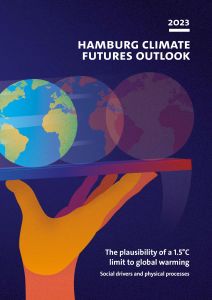Join getAbstract to access the summary!

Join getAbstract to access the summary!
Cluster of Excellence Climate, Climatic Change, and Society
Hamburg Climate Futures Outlook ’23
Hamburg University, 2023
What's inside?
Researchers report scant possibilities of nations staying within the Paris Agreement’s global average temperature limits.
Recommendation
Researchers from the Cluster of Excellence program CLICCS (Climate, Climatic Change and Society) have assessed the possibility of limiting global warming to 1.5°C higher than preindustrial levels. They find that social and natural-world trends make achieving that goal unlikely. They analyze climate threats, including deforestation and melting ice sheets, and offer detailed analyses of trends in fossil-fuel divestment, consumption and climate protests. CLICCS offers steps to limit warming to below 2°C, an achievable goal.
Summary
About the Author
Researchers from an array of fields at the Cluster of Excellence CLICCS (Climate, Climatic Change and Society) study the relationships between climate and society. Universität Hamburg’s Center for Earth System Research and Sustainability (CEN) coordinates the CLICCS program in conjunction with partner institutions.
















Comment on this summary